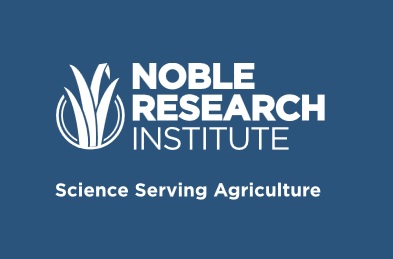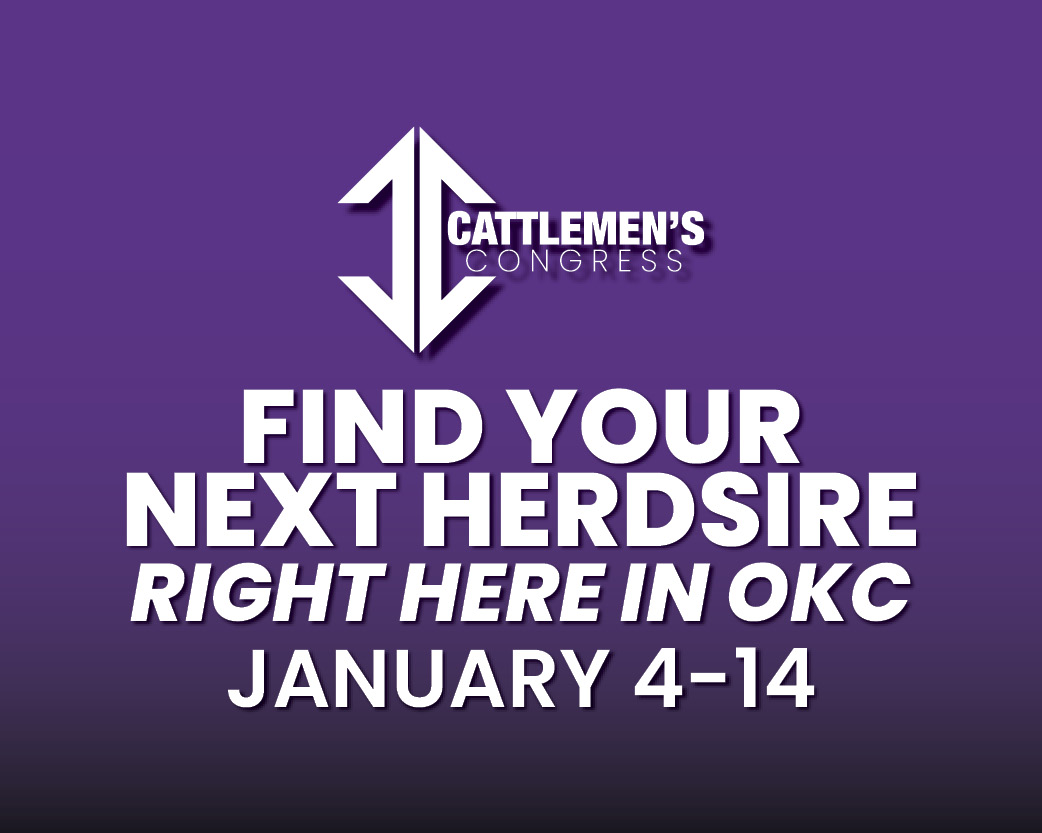
Agricultural News
U.S. Roundtable for Sustainable Beef Helps Industry Improve and Communicate
Thu, 06 Jun 2019 17:15:40 CDT
 The U.S. Roundtable for Sustainable Beef (USRSB), formed in 2015, is a multistakeholder initiative developed to advance, support and communicate continuous improvement in sustainability of the U.S. beef value chain. Ever since its inception, the Noble Research Institute has been a part of this organization. As a founding member, we helped lay the groundwork for the organization. We remain actively engaged in many of the ongoing efforts today. As the USRSB continues to grow, we wanted to take time to share more about this organization and our involvement.
The U.S. Roundtable for Sustainable Beef (USRSB), formed in 2015, is a multistakeholder initiative developed to advance, support and communicate continuous improvement in sustainability of the U.S. beef value chain. Ever since its inception, the Noble Research Institute has been a part of this organization. As a founding member, we helped lay the groundwork for the organization. We remain actively engaged in many of the ongoing efforts today. As the USRSB continues to grow, we wanted to take time to share more about this organization and our involvement.
Representing Producer Interests
While the Noble Research Institute technically fits into the USRSB as a civil society member, we are also there as producers ourselves. Additionally, because of our work with you as producers, we represent your interests as well. Our work with producers is well known within the group, so we are leaned on to represent your interests as producers in addition to the viewpoints that participating producer members bring.
In 2015, Noble Research Institute helped found the U.S. Roundtable for Sustainable Beef. Read about the group's work and the progress made to date at www.usrsb.org.
What is Sustainable Beef?
These entities came together in 2015 to define sustainability for the beef industry rather than waiting for someone else to define it for us. The USRSB defined sustainable beef as "a socially responsible, environmentally sound and economically viable product that prioritizes planet, people, animals and progress." Beyond that, the group understands there are many facets to sustainable beef and that there is no one-size-fits-all approach. USRSB recognizes that sustainability is a personal journey in which we each are striving for continuous improvement responsibly meeting the needs of today while improving the ability to meet the needs of the next generation.
SUSTAINABLE BEEF IS: A socially responsible, environmentally sound and economically viable product that prioritizes planet, people, animals and progress. - As defined by USRSB
Many of us easily identify with these sentiments. Few of us seek to degrade the resources with which we work. The desire to be better and to leave things better than we found them is common across the agriculture industry. The USRSB captures this essence and communicates it in a way that is easily understood across the supply chain and to our consumers.
THE FIVE CONTITUENCIES OF THE USBRB
The USRSB comprises five constituencies: civil society, retail, processors, allied Industry and producers.
ONE: PRODUCERS
Producers are inpiduals, organizations and associations of people who are actively engaged in the ownership and management of cattle used to produce beef. Members include cow-calf producers, stocker operators and feedyards.
TWO: ALLIED INDUSTRY
Allied industry is the organizations and associations of people who supply the beef value chain with goods and services. These members include, for example, pharmaceutical companies, financial institutions, technology providers and others.
THREE: PROCESSORS
Processors are those who process cattle and beef into saleable products. These members include Lopez Foods, based in Oklahoma City, and Cargill.
FOUR: RETAIL
Retail comprises those who bring beef and beef-related products to consumers. Retail members of USRSB include McDonald's, Arby's, Wendy's, Walmart, Target and Taco Bell.
FIVE: CIVIL SOCIETY
Civil society is made up of academic institutions, non-government and non-commercial institutions, foundations, alliances, and associations with a stake in the beef value chain.
The Noble Research Institute fits into the USRSB as a civil society member, along with other entities like the King Ranch Institute fir Ranch Management and several universities.
Setting up a sustainability framework for U.S. beef
Once the group defined sustainable beef, it began working to identify the indicators and metrics that would comprise sustainable beef. Indicators are the areas that span across all sectors of the beef value chain, while metrics make the indicators specific to each sector. After starting with more than 100 potential indicators, the group narrowed it down to six high-priority indicators of sustainability:
- Water Resources
- Land Resources
- Air and greenhouse gas emissions
- Efficiency and yield
- Animal health and well-being
- Employee safety and well-being
Together, the group said that these area indicate sustainability in beef production, no matter the segment of the industry in which you participate. After reaching this milestone, group members then had their work cut out for them in defining the inpidual metrics for each indicator by production segment.
A U.S. BEEF INDUSTRY SUSTAINABILITY FRAMEWORK RESOURCE TOOLBOX
SUSTAINABLE BEEF
A socially responsible, enviromentally sound and economically viable product that prioritizes planet, people, animals and progress.
HIGH-PRIORITY INDICATORS
Outline areas most important to beef sustainability: animal health and well being, efficiency and yield, water resources, land resources, air and greenhouse gas emmissions, and employee safety and well-being.
SECTOR-SPECIFIC METRICS
Measure progress across high-priority indicators, leveraging opportunties unique to each segment of the beef value chain.
SUSTAINABILITY ASSESSMENT GUIDES
Provide technical guidance to aid user understanding and implementation of metrics.
Actions and Assessments
Through this process, members of each segment defined their metrics. For instance, cow-calf producers developed the land resource metric for the cow-calf segment. No other segment had the right to come in and tell another segment how to do their job, so to speak. The segments offered each other feedback and suggestions, but they each dictated their own area. Engaging each sector of the value chain was a critical component in every developmental step.
Lastly, in the framework of the sustainable beef, the group developed Sustainability Assessment Guides (SAGs). These are technical guidance documents to aid user understanding and facilitate implementation. They also provide users with additional tools and resources for assessing their own operations relative to the high-priority indicators and accompanying metrics.
During the course of the past four years, a significant amount of work has been done to develop this framework. In no way has this been a single person's effort. There have been more than 250 people involved throughout this process. Further, when the framework was put out for public comment, more than 1,000 comments were received and helped refine the framework. If you haven't had a chance, I encourage you to visit www.USRSB.org to read more about the framework. Hopefully it is useful to you as you work to continually improve your operation.
Noble and the USRSB
As I mentioned at the beginning of this article, Noble has been involved from the start. Chad Ellis, industry relations and stewardship manager, was one of the founding directors of the board and remains in that capacity today. I also recently joined him as a member on the board of directors.
One way that many of you may be familiar with our involvement is through the Integrity Beef Sustainability Pilot Project, in which several of you have participated during the last two years. This pilot project is a collaboration that involves several supply chain partners and aims to test the indicators and metrics put forth by the USRSB.
Additionally, we have been working to develop a self-assessment tool for all segments of the value chain. Many of the participants in the pilot project tested the beta version of this tool and provided us with feedback. This tool is continuing to be developed for broader adoption through the USRSB. The goal of the self-assessment is to provide entities with a way to score their sustainability. The self-assessment is designed to be for each entity's own use and to help them continue to improve. The idea is that you would score yourself once each year, just as you would your production or financials, and use the assessment as a tool to help refine your management going forward.
These are just a few examples of how Noble and some local producers have been involved in the USRSB. Further, every member of the USRSB recognizes how hard it is for inpidual producers to attend each of the meetings in person. Webinar call-in numbers are always available for folks to call in and participate. This may be an avenue through which some of you choose to participate.
As the USRSB moves forward in communicating this framework and aims for adoption within the beef industry, I hope you will consider joining the effort. Our consumers and partners are asking for sustainable products. This is our way to communicate to them all the great things we as beef producers are doing while always striving for more. If you would like to discuss this topic further, don't hesitate to reach out to any of us here at Noble
Source: Noble Research Institute: Myriah Johnson, Ph.D. Economics Program Leader and Agricultural Economics Consultant
WebReadyTM Powered by WireReady® NSI
Top Agricultural News
More Headlines...





